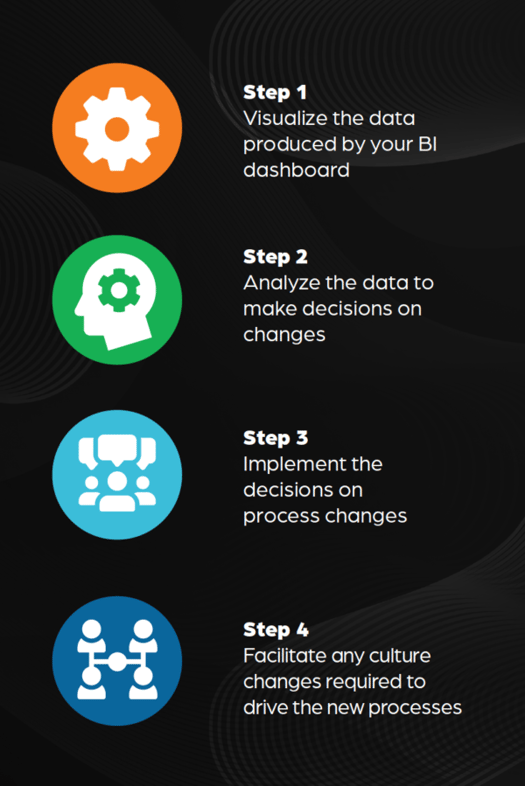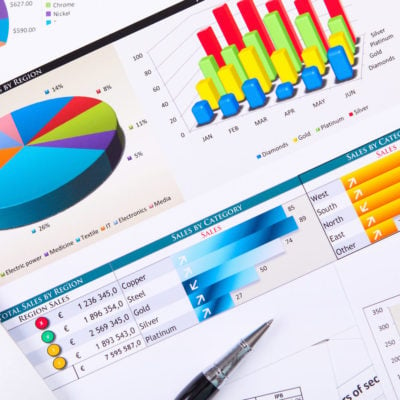Data Quality Is Key...But Perfection Is Not Required.
Many BI initiatives never lift off because executives don’t trust their data.
They think users won’t adopt the outputs produced by the solution and that BI is useless without “perfect” quality data to start with.
But that perspective overlooks one of the primary benefits of BI: The process enables you to clean your data so it continuously gets closer to a “perfect” quality state and subsequently improves the quality of your BI outputs.
Until you go through the process, you won’t know the exact condition of your data and what it takes to increase the quality. More than likely, your business is already capturing sufficient data, and the data you have is probably better than you think. It may be in raw form, or there may be data that is missing, but what’s there now is sufficient to start the BI process. By going through the process, you can more easily find any data that is not perfect and fix it. You may discover systems are not collecting all the data they should be—perhaps end-users sometimes forget to enter data.
The Data Improvement Lifecycle
Once you implement a BI process and as you expose existing data flaws, your data will get cleaner, which improves the analytics. It becomes a repeating process…cleaner data leads to better analytics, which further increases the quality of the data over time as you go through a continuous lifecycle:
You will then repeat the process by visualizing the new data produced by the process changes. The changes will also identify where you can improve the quality of the data so you can conduct additional analysis and apply more changes to further enhance process efficiencies.
As you gain visibility into where you can elevate data quality, you may discover new data to input or data you need to capture in a different way. As you see the results, you will know what to fix.
Intelligence Leads to Confident Decisions
No matter your industry or business, success can be bolstered by high-quality reliable BI data that accelerates decision-making so you can adapt more quickly to changing business conditions. BI also helps develop automated processes that strengthen operational efficiencies and facilitate data governance to improve your regulatory compliance capabilities.
As your BI solution matures, decisions will be made with confidence based on the foundation of the higher-quality data. This will result in positive outcomes—including increased revenues and reduced costs as your business functions more efficiently. There’s also less time spent reconciling the data. Instead of manually collecting data—where time and effort do not scale—your users get intelligence right at their fingertips.
Author: Ian Netland





